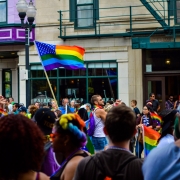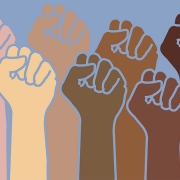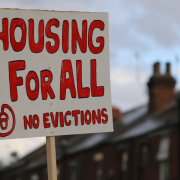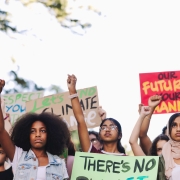Juneteenth at IPS: Historical Oppression and Upstream Prevention
On June 19, 1865, U.S. General Gordon Granger led federal troops to Galveston, Texas — one of the few remaining areas of the deep south that had held resistance late into the Civil War. As General Granger stepped foot on that arid soil, he brought with him orders which stated that all slaves were to be set free. These words, stated over two years after the Emancipation Proclamation, marked what many consider to be the “official” end of slavery in the United States, as those freed in Texas that day were many of the last slaves to be informed of their liberation.
This year, on June 19, 2022, the United States will be recognizing Juneteenth as a holiday following its enshrinement at the federal level in 2021. The Institute for Public Strategies will also be recognizing Juneteenth as a paid company holiday. IPS’ formal recognition of Juneteenth as an important date represents our organizational commitment to serving and elevating the voices of African American communities to address their unique needs and visions.
As practitioners of population-level prevention programs, IPS initiatives address the root causes of health disparities, which are frequently the result of inequitable community conditions and social injustice. To prevent harm and improve public health and safety, IPS focuses on policy and systems change to achieve healthy, safe environments and provide for equal opportunity so that everyone in a community can thrive—this elevates the health of entire communities, rather than focusing on the health of select individuals. That’s why, when discussing the issues relevant to African American communities, context is key. Issues that have plagued neighborhoods for decades—nearly centuries—did not crop up overnight. In fact, quite the opposite: history shows that many of the persistent issues faced by African American communities are rooted in systemic and institutional inequities.
In areas like San Diego County, IPS initiatives encounter these structural injustices across programs. For example, IPS San Diego’s Binge and Underage Drinking Initiative (BUDI) often sees evidence of systemic inequity in things like the concentration of liquor outlets in neighborhoods of color—areas that were often formerly “redlined” by racist housing practices. Moreso, despite African Americans often drinking less on average than other demographic groups, predatory marketing practices by alcohol manufacturers are often targeted toward young Black people.
These are only a few instances of unequal and unfair treatment toward African Americans by just one industry—Big Alcohol. However, they represent just a few blips along a spectrum of injustice leveled against Black communities stretching all the way back to before that historic date on June 19, 1865.
In fact, many slaves brought from West Africa to the Americas during the early slave trade were bought for gallons worth of rum—a product of the very same sugar cane from plantations already employing slave labor. Thus, the history of African slavery in the Americas is also inextricably linked to its production of alcohol. This metaphor can be extended even further to describe how alcohol was historically used to control enslaved peoples; drunkenness was discouraged, except around the holidays when alcohol was liberally distributed to keep slaves from thoughts of revolt or insubordination. This mentality then informed later laws like Black Codes and Jim Crow which would enforce strict penalties for drunkenness in public—if you were Black.
Despite the long and storied history of the use of alcohol as an oppressive tool toward Black communities, this topic represents just one way in which a single IPS initiative encounters the deep history of injustice toward communities of color.
For example, in 2020 after the City of Adelanto passed legislation that proclaimed racism as a public health crisis, staff at IPS San Bernardino affirmed our organizational commitment to the value of Black lives and communities. This effort presents several opportunities for staff collaboration with the City of Adelanto, including educating BIPOC youth about engaging with local government and working with high-risk businesses to develop ways they can contribute more positively and equitably to the community. Along with other partnerships—like The St. Joseph Foundation’s Heart & Soul initiative and the Reimagine Our Communities Coalition (ROC)—IPS San Bernardino continues to exemplify allyship for Black health and safety.
Despite the hurdles IPS encounters working on our projects, we believe in creating equity and fairness in health and safety. This means learning from, engaging with, and elevating the voices of the communities we serve. Reverend Bolivar Flores, IPS’ newest member of its Board of Directors, summed up this mission:
“IPS wants to create a healthy community by creating economic opportunity, keeping residents safe by preventing crime, and focusing on equality for all. […] They have partnered with community groups throughout the nation to advance policies on issues related to public health, safety, equity and social justice. I believe the best way to create change is by defining the underlying issues and devising plans to resolve them, and IPS’ work on policy and systems change exemplifies that. […] Seeing that ambition to help a community rebuild into a safer city and create a brighter future for its residents is very inspirational.”
# # #
Author:
Michael Pesavento
Media Advocacy Specialist
Michael Pesavento is a Media Advocacy Specialist in the San Diego County office.










